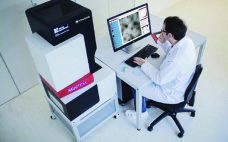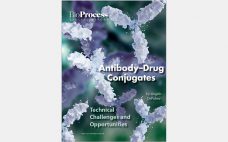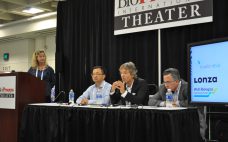Gene therapy is the transfer of genetic material to a patient‚Äôs cells to achieve a therapeutic effect. Therapeutic DNA typically is delivered using a viral vector system, and adenoviruses have been used for this purpose for over 20 years (1‚Äď3). Within the past 10 years or so, lentiviruses have shown promise in clinical trials (1‚Äď3), and adenoassociated viruses (AAVs) have been used in the first approved gene therapies in the Western world (4). The number of gene therapy applications based…
Emerging Therapeutics
Introduction: Emerging Therapies Come of Age
According to a 2017 industry report, 74% of biopharmaceuticals currently in development (phase 1‚Äď3) are possible first-in-class medicines (those that use a unique mechanism of action), thus representing a potential new pharmacological class of treatment (1). They include regenerative medicines, conjugated monoclonal antibodies (MAbs), and DNA and RNA therapeutics. Some emerging therapies ‚ÄĒ such as antibody‚Äďdrug conjugates (ADCs) and biobetters ‚ÄĒ have been more at the forefront of discussions than others, but all are poised to bring exciting changes to…
Development Approaches to Adenoassociated Virus Production
After many years of development, gene therapy is beginning to deliver on its promises in the clinic, in some cases with spectacular outputs. Those clinical successes also have led to an influx of funding and engagement from large pharmaceutical companies, thereby bringing the required financial support and expertise for late-stage clinical developments and product commercialization. Although many initial studies were confined to small patient groups and focused on a range of rare monogenetic diseases, new approaches to gene editing have…
Process Needs of Antibody Fragments and Bispecifics: A Discussion with Jonathan Royce of GE Healthcare
Although the number of bispecific antibodies approved so far (two) and antibody fragments either approved or with an investigational new drug (IND) filed (‚ąľ20, both antigen-binding and variable) are far below the number of approved and candidate monoclonal antibodies (MAbs), research in both fragments and bispecifics continues to look promising. And as Jonathan Royce, business leader for chromatography resins at GE Healthcare, discusses here, both offer specific therapeutic advantages over MAbs. But manufacturers should be aware that their diverse structures…
Controlling Glycosylation in Fusion Protein Manufacturing to Generate Potent Biobetters
The pipelines of pharmaceutical companies are full of biological drugs. Many of them are innovative therapeutic proteins, but a growing number represent biosimilars and biobetters (Figure 1) (1). Biobetters typically are defined as being ‚Äúbased on innovative biologics but with improved properties‚ÄĚ (2). Their development benefits from known therapeutic approaches and mechanisms of action resulting in low risk, fast paths to the clinic and thus lower costs. Superiority is achieved through extended half-life (t1/2), improved efficacy, and reduced immunogenicity or…
Developments in Antibody‚ÄďDrug Conjugates: A Discussion with Thomas Ryll of ImmunoGen
As a major class of emerging therapies, antibody-drug conjugates (ADCs) already have gained the attention of biopharmaceutical researchers and manufacturers because they combine both the precision of monoclonal antibodies and the potency of highly potent drug compounds. A few ADCs already have entered the market, but many more candidates are progressing through industry pipelines. Platform processes are not yet universal (and it remains to be seen whether they ever will be), but major ADC developers are establishing their own with…
Panel Discussion: Emerging Biotherapies and Their Manufacturing Challenges
At noon on Tuesday, 20 June 2017, BioProcess International presented a panel discussion as part of the ‚ÄúEmerging Therapies‚ÄĚ session of its BPI Theater at the Biotechnology Innovation Organization‚Äôs annual convention in San Diego. Moderated by Patricia Seymour (senior consultant at BioProcess Technology Consultants), this panel comprised Holger Wesche (vice president of research at Harpoon Therapeutics), Richard Snyder (chief scientific officer of Brammer Bio), Marc Better (vice president of product sciences at Kite Pharma), and Paulo Carvalho (associate director of…
Specialized Outsourcing Services: Antibody‚ÄďDrug Conjugates
Managing just the conjugation part of an antibody‚Äďdrug conjugate (ADC) project can be a challenge. So when you consider all the component parts of an ADC, it is understandable why so many related activities are outsourced. At Piramal Grangemouth, we provide conjugation development and manufacturing services. Together with our sister sites in the United States and United Kingdom, we offer payload manufacture and fill‚Äďfinish capability. The Grangemouth (UK) site has been involved in ADC conjugation services now for over 13…
Special Report on Antibody-Drug Conjugates: Technical Challenges and Opportunities
Among the emerging targeted therapies in biotechnology, antibody‚Äďdrug conjugates (ADCs) hold a unique position. An ADC consists of a monoclonal antibody (MAb) with affinity to tumor cells, a cytotoxic small-molecule payload, and a linker connecting the two. Together the MAb, conjugation chemistry, and cytotoxin increase the complexity of ADCs several-fold relative to unmodified MAbs ‚ÄĒ and exponentially relative to chemotherapies. Viewing ADCs as hybrids of antibody- and chemotherapy-based cancer therapies is tempting. That description applies chemically and structurally, but ADCs‚Äô…
Outsourcing and Biomanufacturing Challenges for Emerging Therapies: A Roundtable Discussion at BIO 2016’s BPI Theater
The biopharmaceutical industry is increasingly interested in a range of emerging therapies. ‚ÄúWe‚Äôre really starting to get beyond the monoclonal antibody,‚ÄĚ said Patricia Seymour (senior consultant with BioProcess Technology Consultants) in her introduction to a lunchtime BPI Theater roundtable at the 2016 Biotechnology Industry Organization annual convention in San Francisco, CA, this past June. The discussion brought together three industry insiders for strategic outsourcing to talk about emerging biotherapies and their manufacturing challenges: Mark Angelino (senior vice president of pharmaceutical…









